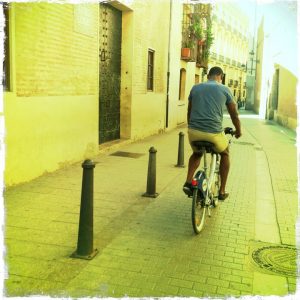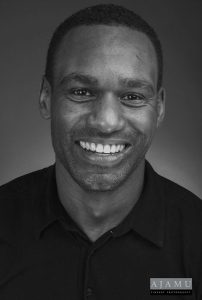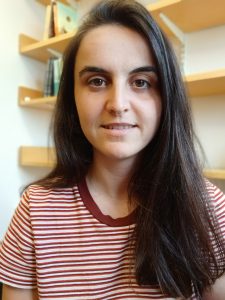Queering Active Travel
The Active Travel Academy is pleased this year to support two small projects on the wider theme of Queering Active Travel following our call for proposals earlier this year. Thanks to Antoine & Steve and to Jerònia for their great projects about which they have provided information below (and indeed to all applicants, we were sorry not to be able to fund more research ideas).
Firstly, Why We Run and Cycle, Or Not: Exploring the Experiences and Perceptions of Black Queer Men, led by Evidence to Exist Research Group’s Dr. Antoine Rogers, and Steve Chambers.

Evidence to Exist Research Group (E2E) is keen to lay the groundwork for future research that produces a deeper understanding of social and economic factors that impact Black Queer men’s running and cycling experiences. Since 2017 E2E projects have identified, amplified, and expanded narratives of people from economically and racially minoritized communities and sexual minority groups, particularly those who live at the intersection of both. E2E supports social change through community engagement projects, education, training, and research highlighting marginalised groups’ health and well-being experiences.
This project was inspired by recent research exploring barriers to walking, biking and E-Scooter Use in Black Communities in the USA and London and the absence of Queer perspectives. Also noted was the lack of diversity among the demographic of Black Queer men in recent studies. E2E recognises the need for research models that identify diasporic differences among Black Queer men. This project reflects diasporic diversity and includes Black Queer men, albeit all living in London, but representing different parts of the Black Diaspora.
Like other work, this project explores general perceptions of running and cycling’s social, health and economic benefits. It measures attitudes and beliefs contributing to the frequency of running and cycling among Black Queer men. Accepting that economic and social factors impact public behaviour, including leisure and exercise activities, the project identifies economic, social, and cultural factors that impact the frequency of cycling and running among Black Queer men in different parts of the Black diaspora, including among those born in the UK, West African countries; the Caribbean; and other regions, including the USA.

With 20-25 respondents completing a digital survey informed by a focus group and supplemented by an additional focus group and semi-structured interviews; delivering the project is Dr Antoine Rogers, an Applied Sociologist with extensive experience in research in social policy; the voluntary sector; sexuality; and urban economic and community development; and Steve Chambers and Urban Planner whose expertise derives from a community organising background around the built environment and transport issues. E2E uses a range of techniques to facilitate the development of network culture and models of community engagement to achieve collaborative and community-centred research frameworks to deliver a wide range of research models, including evaluations of intervention projects.
The second project is led by Jerònia Cubells, who is a PhD researcher in Geography at the Universitat Autònoma de Barcelona. The research is using Relief Maps to explore how queer identities are embodied and performed when travelling, using an intersectional approach.

Through an intersectional approach, the project seeks to investigate how queer identities are embodied and performed during everyday trips. Within queer mobilities, it focuses on how lesbian and bisexual women, including both cisgender and transgender, navigate and perceive Barcelona streets. The city, renowned as a place of comfort for the LGBTQ+ community, serves as an ideal setting to deepen our understanding of the mobility habits of residents as well as those who have relocated or experienced sexile. The research aims to shed light on the complex interplay between queerness and urban landscapes by examining the feelings of (dis)comfort experienced by queer women in different spaces, at various times of the day, and with different companions. This approach is particularly important as it explores how the intersection of gender identity and sexuality influences active travel behaviour, taking into account other intertwined axes such as race, class, motherhood, age, capabilities, and gender expression. Additionally, it addresses the often-overlooked experiences of lesbian and bisexual women within feminist and queer geographies that examine the public sphere.
To contribute to the methodological advancement in the field, the project builds upon the Relief Maps approach. This method was developed by Maria Rodó-Zárate and provides a unique tool for analysing power structures in relation to experience and place. It begins with interviews where participants are encouraged to share their experiences in frequently visited places. They are also prompted to reflect on their feelings of (dis)comfort within each space, considering the influence of their various identities. These narratives are then used to create maps that visually represent how power structures operate within specific locations. The study seeks to push the boundaries of the Relief Map technique by applying it to study the connection between everyday spaces through active mobility. By employing a combination of qualitative and quantitative techniques, this method allows us to visualize the intricate relationships between sexuality, gender, and space from an intersectional perspective. Both the interviews and maps will facilitate unravelling how multiple identities are embodied and performed when walking, biking, or skating throughout the city. This research will provide valuable insights into the unique challenges they face, the strategies they develop, and the impact of their mobility choices on their well-being.
The study of queer women’s mobilities in Barcelona offers a unique opportunity to advance our understanding of intersectional experiences and active travel. By utilizing the Relief Map technique, the project aims to uncover the complex relationship between queerness, gender identity, and space. Through the research, the researchers aspire to contribute to fostering dialogue, raising awareness, informing urban planning and policy-making, and contributing to the creation of more inclusive urban spaces that accommodate the needs and experiences of queer individuals.